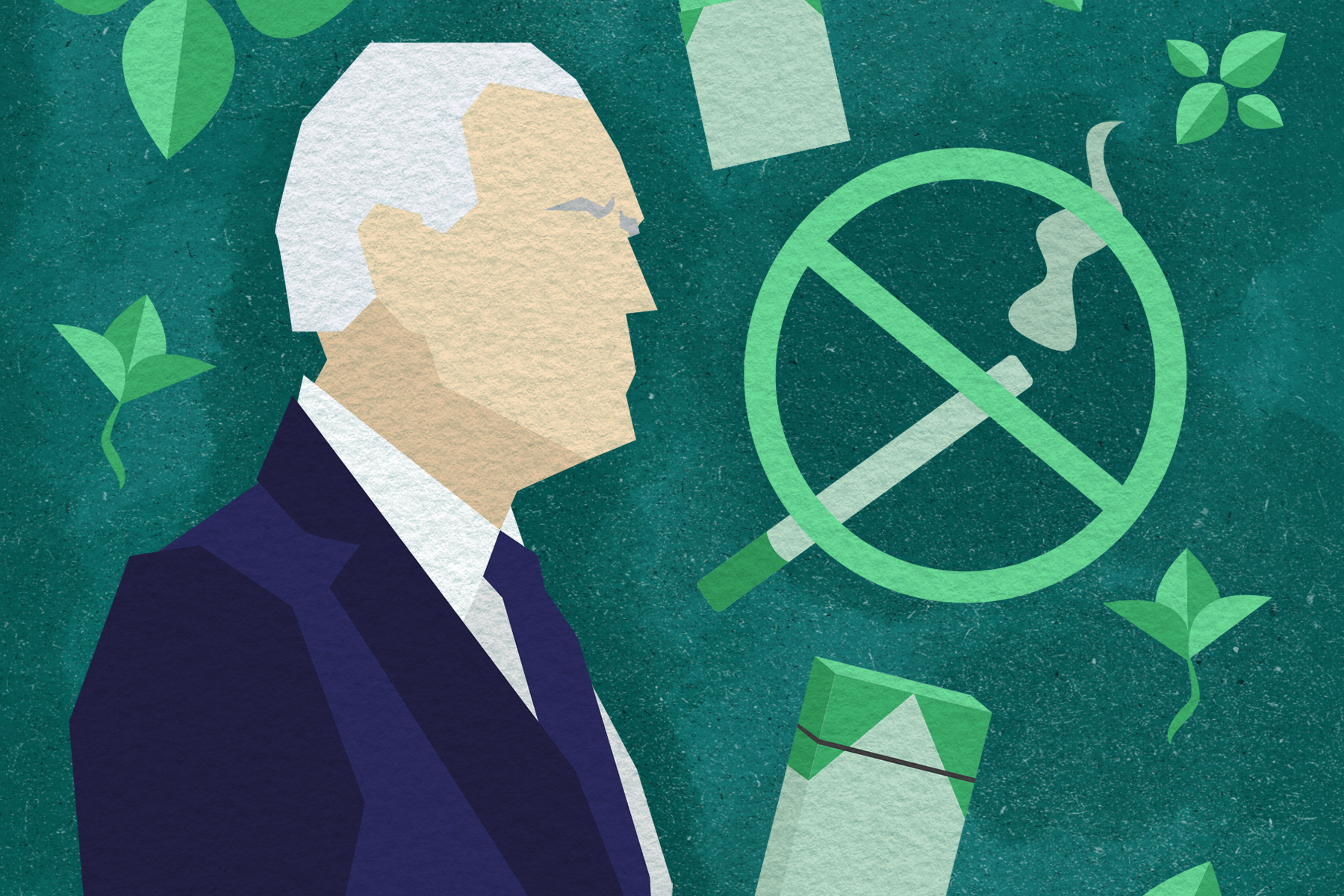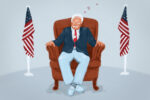President Joe Biden’s recent proposed ban of menthol cigarettes is just one in a long line of measures intended to reduce tobacco-related deaths and illnesses — but is the ban the correct move?
Many say, yes, and the previous and current bans have been met with praise from health and civil rights organizations.
For those that aim to end diseases such as lung cancer and heart disease, the ban is a step toward a healthier populace. African Americans in particular are heavily affected by the health ramifications of menthol cigarettes, leading numerous equality-focused organizations to applaud the proposal.
However, some worry that the ban, while well-intended, may lead to disproportionate criminal convictions of underprivileged communities and that it will only lead to an increase in crime by pushing menthols into the underground market.
Regardless, Biden’s menthol ban will have massive ramifications in the coming years. Whether these are positive or negative depends on which side of the argument you’re on.
A Ban Years in the Making
If you are of college age, you probably don’t remember the 2009 ban on flavored cigarettes that made an exception for menthol cigarettes. To 18 to 23-year-olds, menthol has always been the only flavor allowed for a pack of cigarettes they have ever known.
The Family Smoking Prevention and Tobacco Control Act of that year was the first major action by the U.S. government that directly affected the physical cigarettes people could buy. Previous legislation had put warnings on packages and prohibited many types of tobacco advertising, but 2009 brought government interference directly into the carton.
The law, much like the menthol ban, was heavily criticized by smokers and nonsmokers alike who saw it as an abridgment of their personal freedom. President Barack Obama cited youth health concerns as the primary motivator for the ban, as flavored cigarettes were often the first tobacco products introduced to young people, providing a gateway to a lifetime of smoking and oftentimes lung cancer.
A few years later, in 2013, the Public Health Law Center, alongside 19 petitioners, submitted a petition to the FDA to “remove menthol cigarettes from the market.”
In 2021, the FDA is finally taking action on the petition ahead of a court deadline. This new act is certainly motivated by the same health concerns as those in 2009, but now with a focus on the disparate health effects of menthol cigarettes. African American, Hispanic and Asian smokers, for example, are up to 57.1% more likely to smoke menthol cigarettes than white smokers. These groups, specifically African Americans, also suffer the most health consequences, as The New York Times reported.
A Public Health Emergency
The ban on menthol cigarettes has unequivocally divided people in the same way as in 2009, but there are strong cases in the health and social justice worlds that can sway even the most fervent menthol supporters.
Obviously, health is the biggest motivator behind the ban. Lung cancer is the third most common form of cancer in the United States — a disease that is almost exclusively caused by smoking tobacco products. The likelihood of coronary heart disease and stroke is increased by up to four times when smoking cigarettes, and smoking-related illnesses as a whole cause more deaths annually than human immunodeficiency virus, illegal drug use, alcohol, motor vehicle accidents and firearm-related incidents combined.
While banning menthol in cigarettes won’t eradicate smoking, studies have shown that it has the capacity to drastically lower it. Approximately 28% of smokers smoke menthol cigarettes, with the highest concentration being young people, who make up nearly 75% of menthol cigarette smokers. Flavored cigarillos, which are also banned under the proposed legislation, are also popular choices for young smokers. The FDA believes that targeting this age demographic could save thousands of lives.
“One study suggests that banning menthol cigarettes in the U.S. would lead an additional 923,000 smokers to quit,” an FDA statement said.
Civil rights groups are also heavily supportive of the ban, citing the skewed use of menthol cigarettes in the African American community specifically. According to the Washington Post, 85% of Black smokers use menthol cigarettes. African Americans are also the most likely group to die from the various health conditions that come with smoking, with smoking-related illnesses being the leading cause of death among the demographic.
“While Black smokers smoke less, they die of heart attacks, strokes and other causes linked to tobacco use at higher rates than white smokers do, according to federal health statistics,” New York Times journalist Sheila Kaplan wrote.
The Black Lives Matter movement has put a microscope on these issues, and the ban on menthol cigarettes is one part of the FDA’s response to such problems.
A Short-Sighted Band-Aid
While the notion of personal freedom is still a core criticism of the ban for some, many critics’ focus has been on the other side of the civil rights argument.
Reverend Al Sharpton is one of the biggest opponents that use these arguments. He, and many other Black leaders, claim that such a ban is discriminatory against African Americans, as menthol cigarettes, as said before, are a product predominantly used by the demographic.
Other critics claim that the banning of menthol cigarettes will only create an underground market, which could become a breeding place for more nefarious crime as well as police brutality. They point to the case of Eric Garner, who was killed by police in 2014 while allegedly selling illegal single, untaxed cigarettes.
The FDA has claimed, “Enforcement of any ban on menthol cigarettes and all flavored cigars will only address manufacturers, distributors, wholesalers, importers and retailers.”
The tobacco industry, unsurprisingly, is also against the ban. Spokespeople from both Reynolds American and Altria (which own popular menthol-focused brands Kool and Newport) claimed that “published science does not support regulating menthol cigarettes,” and that such a ban would have “serious unintended consequences.”
Awaiting the Answer
Regardless of which side of the issue you fall on, the ban is still a long way from being apparent in everyday life. The process for proposing and enacting such an act can take several years, and as such, the discourse around it will continue for some time to come.

















